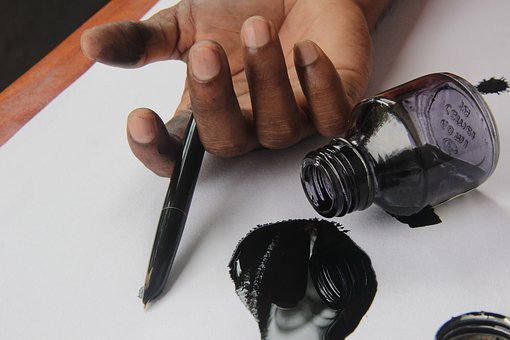When a Word Crosses a Wound Without Making it Bleed: Writing! |
One of the most fundamental questions of creative writing for self-cleaning (cathartic writing) is; is it true that writing can be a therapy for wounds or even make old wounds bleed again. Borrowing Zubaidah's "Ibeth" Djohar quotes; "the journey opened up old wounds without making him bleed".
How a wound that we want to forget or want to heal can be made bloodless when we trace back the aisles of memories that are still imprinted strongly. The efforts to bring back the facts experienced, seen, or heard is a risk-laden business. On one hand it can be therapeutic, on the other hand it is like a fire that burns dry branches.
Make peace with the past
Many survivors of violence treat wounds by leaving it to the time to neutralize it, instead of healing it. Hoping time will erode bad memories and be able to forget past trauma.
The Acehnese people who have a strong culture of speech, do not have a modern tradition of controlling mental turbulence by consulting a psychiatrist. This was proven in a study after the tsunami disaster, most of the people of Aceh used a religious approach in order to be able to accept disasters that shook the body and soul.
Efforts to express this experience in written form require a concerted effort to collect bloody memories into a story, whether written in the form of essays, short stories, or poetry. Literary writing or an academic report, both have the potential to make old wounds open again.
Memory exploration is an attempt and presents the fragments of facts in writing, is another effort that is no less painful (or even fun), especially for the first time writing. There is an insistence — both from the personal and the community — to present beautiful writing that is a burden. Advice from a mentor to release all burdens when writing, sometimes even presents burdens in other forms.
However, writing is indeed a long process that cannot be done immediately even though under the mentoring of a reliable writer. Some say, writing that is easy to understand is difficult, while writing that is difficult to understand is easy.
For writers who have experienced bad experiences during a conflict or disaster, special preparation is needed so that the writing does not become an attempt to pour vinegar over a dry wound. Or it could be a writing venting anger full of verbal abuse.
In an atmosphere full of revenge and anger, how can I give birth to an interesting writing. An article requires the involvement of thoughts and feelings that support each other, in addition to other technical requirements that can be learned autodidactly or directly to prominent writers, such as those given by Zubaidah Djohar and Kurnia Effendi to members of the Creative Minority of Universitas Malikussaleh in Aceh, Indonesia.
So that an article does not become a place for vengeance and tends to blame certain parties, the writer must make peace with the past. The past, no matter how bitter and painful it is, it has become a memory.
People can have a variety of motives to raise the past in writing, but when not building psychological distance with the past, then the goal of self-cleansing through creative writing will not be achieved optimally. []
Continued…



Kalimat yang di sampaikan oleh Zubaidah Djohar, dan Kurnia Effendi, ini bisa menjadi pemicu semangat bagi para penulis. Tapi bagi beberapa orang, berdamai dengan masa lalu adalah hal yang sulit, terlebih ia pernah mengalami masa lalu yang kelam dalam dunia literasi.